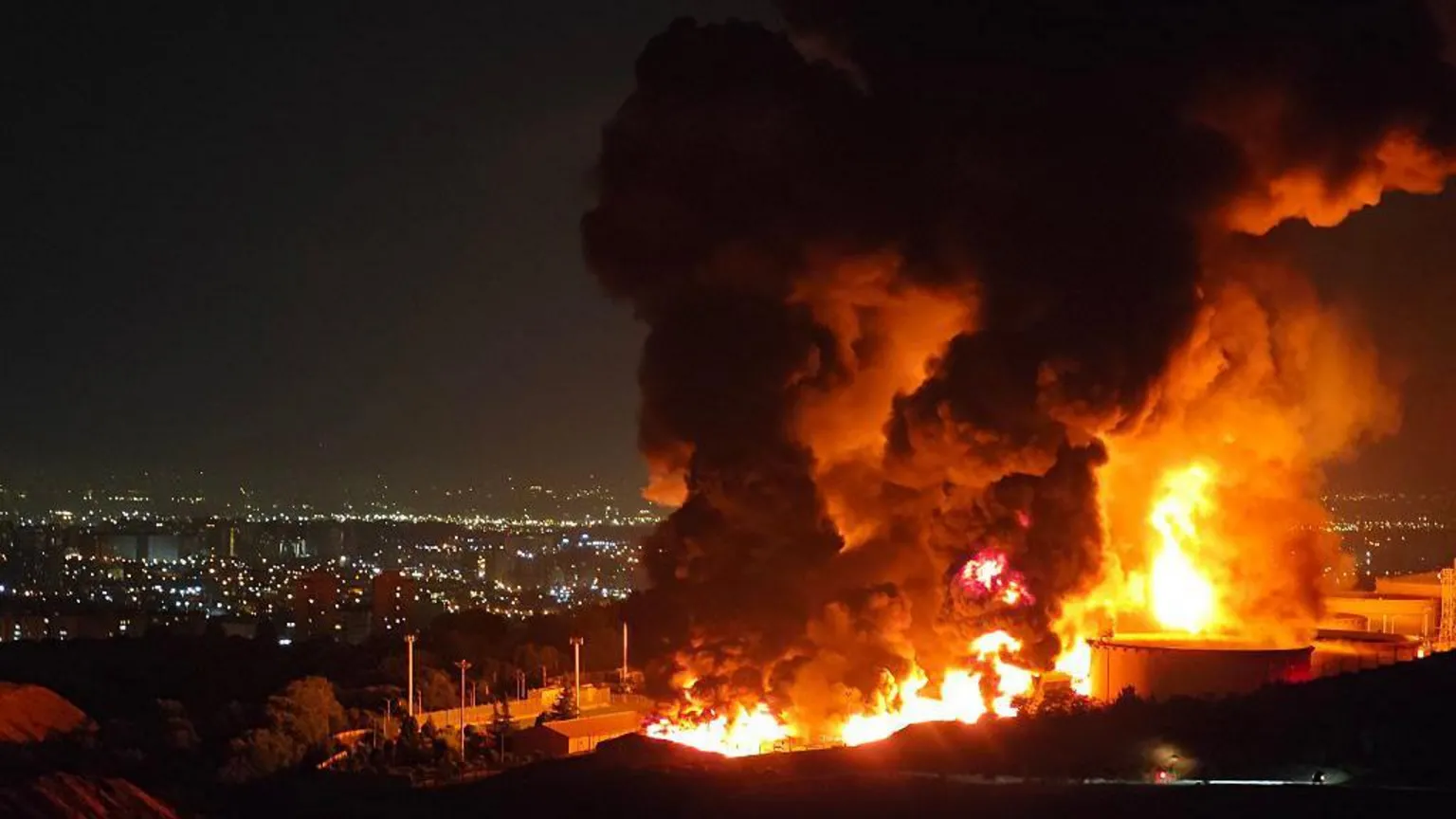Escalation of Tensions: Israel and Iran Engage in Intensified Conflict
The ongoing hostilities between Israel and Iran have markedly intensified, with exchanges of military strikes continuing into the week. The conflict erupted on Friday when Israel targeted Iranian nuclear and military installations, prompting a retaliatory response from Iran.
According to Iran's health ministry, over 220 individuals have lost their lives due to Israeli attacks, whereas Israel reports that 24 fatalities have resulted from Iranian strikes. The situation is evolving rapidly, with both nations engaged in a fierce exchange of aerial assaults.
Timeline of the Strikes
The military actions commenced at approximately 03:30 local time on Friday, with explosions shaking Tehran. Reports indicated that residential areas were affected, and blasts were also heard in the outskirts of the capital. The Israeli military confirmed that it targeted numerous military installations, including key nuclear facilities across Iran.
In Israel, residents were alerted by air raid sirens as authorities declared a state of emergency in preparation for potential Iranian retaliation. Following the initial strikes, Israeli forces targeted the Natanz nuclear facility, located about 225 kilometers south of Tehran, claiming substantial damage was inflicted. Prime Minister Benjamin Netanyahu referred to this operation as "Operation Rising Lion," asserting that it aimed directly at the core of Iran's nuclear capability, warning that if unaddressed, Iran could develop nuclear weapons swiftly.
Iran's Response
In reaction to the strikes, Iranian Supreme Leader Ayatollah Ali Khamenei warned that Israel should expect severe repercussions, while the foreign minister characterized the attacks as a "declaration of war." Iran's foreign ministry indicated that the United States, as Israel's primary ally, would also share responsibility for the conflict.
On Friday morning, Iran launched approximately 100 drones towards Israeli targets, with the Israeli Defense Forces (IDF) reporting that most were intercepted. Subsequently, Iran escalated its response with a ballistic missile assault on various military sites and airbases in Israel, an operation it named "True Promise 3." Bright flashes were observed over major Israeli cities such as Jerusalem and Tel Aviv as the Iron Dome defense system attempted to counter the incoming missiles.
Continued Strikes and Casualties
The conflict persisted over the weekend, with sirens sounding in numerous cities, including Tel Aviv and Jerusalem. Reports indicate that Israeli air forces targeted multiple locations in Tehran, resulting in civilian casualties. Oil infrastructure was also affected, with significant fires reported at facilities in both nations.
On Sunday, a strike in Bat Yam, Israel, resulted in six fatalities, while Iranian assaults on the northern town of Tamra claimed four lives. The IDF stated that it had attacked over 80 targets in Tehran during the night, including key military installations.
Looking Ahead
Netanyahu described the military campaign as a targeted operation aimed at neutralizing the Iranian threat to Israel's existence. An Israeli military spokesperson claimed that Iran possesses sufficient nuclear material to potentially create weapons "within days." However, Iran has consistently denied any intent to develop nuclear arms.
The international community remains on high alert as the situation continues to develop, with both nations bracing for further conflict.








Comments (0)
Leave a Comment
Be the first to comment on this article!